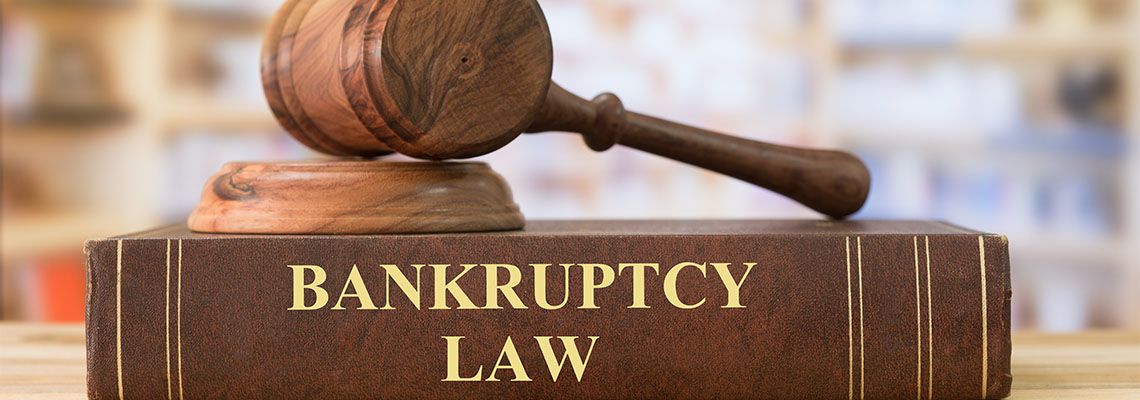
Can I Keep My House & Car If I File for Bankruptcy?
For individuals and families going through financial distress in North Carolina, filing for bankruptcy is among the promising options to get debt relief. However, specific rules address how bankruptcy works, the eligibility requirements, and the assets that consumers may sell or keep upon filing. A seasoned North Carolina bankruptcy attorney can answer your questions about assets that you can keep or sell when you file for bankruptcy.
At Cannon Law Offices, PLLC, we have the diligence and resources to advise clients on legal matters such as bankruptcy and debt relief. Our dedicated attorneys can educate you about your different bankruptcy options as well as the possibility of keeping your vehicle or house upon filing. We’re proud to serve clients across Greenville and throughout eastern North Carolina, including the Outer Banks, Wilmington, Washington County, and Hyde County.
Chapter 13 Bankruptcy
Chapter 13 bankruptcy is available to individuals who earn a regular income but have a huge debt burden. This bankruptcy option allows you to pay off your debt using your future income. In a Chapter 13 case, you will propose a repayment plan — ranging between three and five years — to your creditor. Some of your unsecured debts may also be discharged at the end of your Chapter 13 repayment plan.
Generally, Chapter 13 bankruptcy allows consumers to keep all or most of their property and assets while paying off their debts. In most cases, none of your assets will be sold upon filing for protection under this chapter. However, it is only available to regular income earners who are facing financial instability or overwhelmed with debts.
Can You Keep Your House & Car With Chapter 13 Bankruptcy?
As previously mentioned, you would be allowed to keep all or most of your property and assets in a Chapter 13 case, including your house and car. Generally, you will pay any outstanding amount you owe on an asset like house or vehicle using your disposable income through your Chapter 13 repayment plan. Hence, you may need to divert all your disposable income to offset the debt.
If you want to keep your house and vehicle after filing for Chapter 13 bankruptcy, you would have to keep making monthly mortgage or car payments. Conversely, if you’re unable to continue making monthly payments, the creditor or lender may file a petition requesting the court to lift the existing automatic stay order. Once lifted, the lender can take necessary legal action to foreclose or repossess your property.
Chapter 7 Bankruptcy
Chapter 7 bankruptcy can help consumers facing financial hardship clear away most of their general unsecured debts — such as personal loans, credit cards, and medical bills — and achieve a financial clean slate. In a Chapter 7 case, a trustee appointed by the court will collect and sell your non-exempt assets.
Non-exempt assets that are often sold in a Chapter 7 case include second cars, vacation homes, second homes, stocks, bonds, family heirlooms, bank accounts, and other investments. The trustee will use the net proceeds from these sales to pay off some or all of your debts.
However, in a Chapter 7 case, you may keep your exempt assets, such as your primary home, primary car, furniture pieces, clothing, household appliances, pensions, and personal injury compensation.
Can You Keep Your House With Chapter 7 Bankruptcy?
In North Carolina, homestead exemptions will protect the equity in your primary property. This protects up to $35,000 in equity of the residential property for individuals or $70,000 for married couples filing jointly. As a result, you can keep your primary residential home in a Chapter 7 case, provided it is within the exemption limits.
In a situation where the homestead exemption is unable to protect the equity in your home, the trustee may be entitled to sell the house. Once sold, the trustee will distribute the proceeds to your creditors.
Can You Keep Your Car With Chapter 7 Bankruptcy?
Additionally, you may be able to protect your vehicle’s equity using North Carolina’s motor vehicle exemption if you file for Chapter 7. Under this rule, you are allowed to exempt up to $3,500 in vehicle equity as an individual or up to $7,000 as a married couple. Hence, depending on the vehicle equity, you may be able to keep your car. However, any vehicle purchased within 90 days of filing your bankruptcy petition will not qualify for an exemption.
Hire an Experienced Bankruptcy Attorney
Filing for bankruptcy in North Carolina usually involves several complicated procedures. However, before you proceed, you need to understand your possible options, determine whether you’re eligible, calculate equity, and know the available exemptions. Therefore, consulting with an experienced bankruptcy attorney is imperative when considering bankruptcy.
At Cannon Law Offices, PLLC, we are committed to guiding consumers through the complex processes involved in filing for bankruptcy. As your legal counsel, we can evaluate your unique financial situation, advise you about your bankruptcy options, and help file your petition. In addition, we can help you craft an actionable plan to protect your assets during bankruptcy and ultimately improve your finances and credit post-bankruptcy.
Are you considering filing for bankruptcy but are concerned about losing your assets? Contact Cannon Law Offices, PLLC, today to schedule a consultation with a knowledgeable bankruptcy attorney. Our skilled legal team can offer you the detailed guidance and advocacy you need to make informed decisions in your bankruptcy case. We’re proud to serve clients across Greenville and throughout eastern North Carolina.
